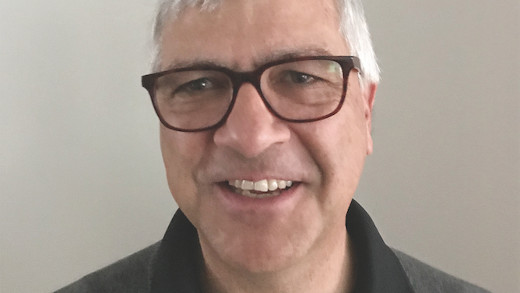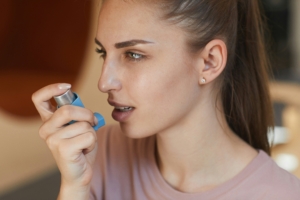
Connectivity is the future
PharmaPack 2018:?The promises of digitalised medicine don't stop at injection pens or autoinjectors. One of the early adopters in the field is Swiss Haselmeier AG (Pharmapack: hall 7.1, booth L19). European Biotechnology spoke with Paul E. Jansen, Member of the Board, from Haselmeier's Boston office about how connected devices could define a new paradigm in therapy compliance and control of chronic diseases, and how they will shape the market.
EuroBiotech_ Mr Jansen, two years ago Haselmeier announced it will add IOT connectivity to its self-injection devices. How will connectivity impact healthcare systems, drug development, and patients’ lives?
Jansen_ That is a broad question. The key to understand the impact of injection devices transmitting data is to look at what is happening when a patient uses a self-injection device. Capturing the data is the easy part. Technologies to transmit them by near field communication (NFC), for example, to other devices such as a blood glucose sensors are already in place. But turning the data into meaningful information is what really matters. As in most industries, data can help recognise trends, predict outcomes, and understand results or in the case of healthcare adjust treatment regimes. Data captured from a clinical trial with diabetes patients, for example, showed their doctors that a majority weren’t appropriately dosed and treated. As the data didn’t show a snapshot but a trend, the physicians were able to make adjustments to the therapy. I think the entire connectivity field is about to transform the way we treat patients. That’s why we want to do this.
EuroBiotech_ What are the major benefits?
Jansen_ We have already seen a transition in how patients generally interact with the new technologies, including the availability of medical information on the Internet. The problem with this data is it’s not the patient’s data. Providing access to their own data gets patients really engaged. It allows them to see what hapens when they change their treatment. This is a great opportunity to significantly improve treatment compliance. Today, more than 50% of patients do not take their prescription medicaments properly. If we could convince this really large proportion of patients through a reminder on their smartphone or a message to their caregivers to take their drugs properly, it could have significant impact on outcomes. That’s interesting for the people who pay the bill. If you could collect data about what was taken, when it was taken, etc. and link it to the outcome or clinical efficacy, payors would be much happier to pay for a drug because they see they are getting value for their money. Payors have no problem paying for a biologic as long as they know it adds value. Vice versa: developers could demonstrate the value of a treatment. Finally, healthcare providers would also benefit, because they could add data analyses to their know-how to recognize new trends that would improve the quality of care. Data from global databases would help them to see how good a particular product, whether approved or in clinical trials, really is.
EuroBiotech_ Why did Haselmeier adopted the trend as one of the first companies in the field?
Jansen_ Haselmeier is absolutely convinced that failure to enter this space will make you irrelevant. Every device in the future will be connected. It’s like in the automotive industry where today a car without electronics is inconceivable.
EuroBiotech_ What is Haselmeier’s strategic goal relating to connected devices?
Jansen_ Our strategic objective is to get a product quickly into the marketplace. We will start with an add-on device to our injection pen devices. In the longer term we will put connectivity into disposable devices which are preferred in the marketplace. There are several challenges before you can launch such a product. You’ll need something that does not yet exist: low-cost sensors cheaper than 10 eurocents. We are also searching for alternatives to batteries to power the devices energy captured by rotational movement, for example. We will seek partnerships to complement our existing technological capacities and patent pool.
EuroBiotech_ What other challenges must be mastered to bring connected devices to the market?
Jansen_ Our customers have recognised where the development is going and they are 100% on board. However, everybody wants the technology but yet nobody wants to pay for it. Some of the cost could be absorbed by the product itself and by highly motivated patients or users. If you look at the the fertility market, you can expect that potential parents are highly motivated and will pay for a device because they are highly interested in a good outcome. In areas you may call the silent diseases, such as diabetes, high blood pressure or high cholesterol, you might have a much harder job. The patients won’t pay because they don’t feel bad unless they experience complications. Their motivation to use a connected device will drop rapidly, so it will become harder for the healthcare providers to establish that there is a beneficial outcome. Scaling technology platforms will keep cost in check but patient engagement will be key to make connected devices a success.
EuroBiotech_ What about concerns regarding data privacy?
Jansen_ There are two major issues we have to solve to support market adoption: data privacy and preventing people from compromising your data by hacking into it. The data privacy issue is just a matter of the building the right system to meet the requirements. The issue of hacking is much more difficult because if you establish countermeasures someone will find a way around it. You can make life harder for hackers, for example, when you transmit the original data by NFC to a device with advanced encryption technology. If you only have a one metre distance in which the data could be transmitted, a hacker must be in the room to access them.
EuroBiotech_ What unique selling points will determine who will be a leader in the field?
Jansen_ I am convinced leaders will be the companies who can prove they have a safe and reliable system. I also believe we should keep things simple. Complex handling will block adoption.
EuroBiotech_ Where does Haselmeier want to be in the future?
Jansen_ Haselmeier wants to be the partner of choice for a connected injection system. However, a lot of water must go under the bridge until we achieve that. We have to make it reality.
(First published in European Biotechnology, Winter Edition 2017)


 BioDlink
BioDlink
 Unsplash+
Unsplash+